For Remembrance Sunday, some of the Dabblers select a favourite verse appropriate to the occasion. The pictures of veterans above are taken from the Drifting Camera blog…
Brit – Seigfried Sassoon: Everyone Sang (1920)
This gradually became my favourite of Sassoon’s poems, then my favourite war poem, and is now just one of my favourite poems. It is a perfect and indelible work of literature. Sassson wrote it in ‘a few minutes’ and ‘in a mindless manner’, as if ‘remembering rather than thinking’. You can hear the poet himself reading it here.
Everyone Sang
Everyone suddenly burst out singing;
And I was filled with such delight
As prisoned birds must find in freedom,
Winging wildly across the white
Orchards and dark-green fields; on–on–and out of sight.
Everyone’s voice was suddenly lifted;
And beauty came like the setting sun:
My heart was shaken with tears; and horror
Drifted away … O, but Everyone
Was a bird; and the song was wordless; the singing will never be done.
Gaw – Thomas Hardy: Drummer Hodge (1899)
I like it as it reminds one how horribly strange the whole business is.
Drummer Hodge
They throw in Drummer Hodge, to rest
Uncoffined — just as found:
His landmark is a kopje-crest
That breaks the veldt around:
And foreign constellations west
Each night above his mound.
Young Hodge the drummer never knew —
Fresh from his Wessex home —
The meaning of the broad Karoo,
The Bush, the dusty loam,
And why uprose to nightly view
Strange stars amid the gloam.
Yet portion of that unknown plain
Will Hodge for ever be;
His homely Northern breast and brain
Grow to some Southern tree,
And strange-eyed constellations reign
His stars eternally.
Nige – Philip Larkin: MCMXIV
Such a poignant reminder that – as well as the terrible toll in human lives – a whole world was lost, and lost beyond recall.
MCMXIV
Those long uneven lines
Standing as patiently
As if they were stretched outside
The Oval or Villa Park,
The crowns of hats, the sun
On moustached archaic faces
Grinning as if it were all
An August Bank Holiday lark;
And the shut shops, the bleached
Established names on the sunblinds,
The farthings and sovereigns,
And dark-clothed children at play
Called after kings and queens,
The tin advertisements
For cocoa and twist, and the pubs
Wide open all day–
And the countryside not caring:
The place names all hazed over
With flowering grasses, and fields
Shadowing Domesday lines
Under wheat’s restless silence;
The differently-dressed servants
With tiny rooms in huge houses,
The dust behind limousines;
Never such innocence,
Never before or since,
As changed itself to past
Without a word–the men
Leaving the gardens tidy,
The thousands of marriages,
Lasting a little while longer:
Never such innocence again.
Patrick Kurp – Thomas Hardy: I Looked Up From My Writing
Thomas Hardy’s 1917 collection, Moments of Vision, includes a section titled “Poems of War and Patriotism.” Most of its contents are accomplished but conventional, until the final poem in the sequence, “I Looked Up From My Writing.” After almost a century, the lyric remains a little creepy and notable for leaving the speaker’s conflicted feelings about war and poetry, politics and art, unresolved. Hardy was seventy-seven when he wrote it:
I looked up from my writing,
And gave a start to see,
As if rapt in my inditing,
The moon’s full gaze on me.
Her meditative misty head
Was spectral in its air,
And I involuntarily said,
‘What are you doing there?’
Oh, I’ve been scanning pond and hole
And waterway hereabout
For the body of one with a sunken soul
Who has put his life-light out.
Did you hear his frenzied tattle?
It was sorrow for his son
Who is slain in brutish battle,
Though he has injured none.
And now I am curious to look
Into the blinkered mind
Of one who wants to write a book
In a world of such a kind.’
Her temper overwrought me,
And I edged to shun her view,
For I felt assured she thought me
One who should drown him too.
For the Romans, Diana represented both the moon and the hunt. Hardy’s moon also is feminine, hunting “one with a sunken soul” and “one who wants to write a book.” The speaker doesn’t deny her accusation, except implicitly: He writes the poem, the one we are reading, a great poem that changes nothing. A writer has but one political obligation, if we can rather pretentiously call it that. He must write well.
ZMKC – John Manifold: The Tomb of Lt. John Learmonth, A.I.F.
This is a poem by the Australian poet John Manifold (1915-1985), written, he said, in 1944, during ‘the von Rundstedt offensive … sitting on my bedroll in a Belgian cowshed with six inches of candle still to burn – we’d long since run out of lights – having just received news in a letter that my old mate had died in a German prison camp. And I was feeling a bit churned up, what with one thing and another, and said: “Oh well, we probably won’t see many more nights to write poems in, I’d better get it down on paper” … It was written in the pretty firm conviction that this was going to be the last thing I would ever write.’ The poem has been described as ‘a magnificent hymn to individual courage,’ which is probably what you need on Remembrance Sunday.
The Tomb of Lt. John Learmonth, A.I.F.
“At the end on Crete he took to the hills, and said he’d
fight it out with only a revolver. He was a great soldier.”
– One of his men in a letter.
This is not sorrow, this is work: I build
A cairn of words over a silent man,
My friend John Learmonth whom the Germans killed.
There was no word of hero in his plan;
Verse should have been his love and peace his trade,
But history turned him to a partisan.
Far from the battle as his bones are laid
Crete will remember him. Remember well,
Mountains of Crete, the Second Field Brigade!
Say Crete, and there is little more to tell
of muddle tall as treachery, despair
And black defeat resounding like a bell;
But bring the magnifying focus near
And in contempt of muddle and defeat
The old heroic virtues still appear.
Australian blood where hot and icy meet
(James Hogg and Lermontov were of his kin)
Lie still and fertilise the fields of Crete.
* * * * *
Schoolboy, I watched his ballading begin:
Billy and bullocky and billabong,
Our properties of childhood, all were in.
I heard the air though not the undersong,
The fierceness and resolve; but all the same
They’re the tradition, and tradition’s strong.
Swagman and bushranger die hard, die game,
Die fighting, like that wild colonial boy –
Jack Dowling, says the ballad, was his name.
He also spun his pistol like a toy,
Turned to the hills like wolf or kangaroo,
And faced destruction with a bitter joy.
His freedom gave him nothing else to do
But set his back against his family tree
And fight the better for the fact he knew
He was as good as dead. Because the sea
Was closed and the air dark and the land lost,
“They’ll never capture me alive”, said he.
* * * * *
That’s courage chemically pure, uncrossed
With sacrifice or duty or career,
Which counts and pays in ready coin the cost
Of holding course. Armies are not its sphere
Where all’s contrived to achieve its counterfeit;
It swears with discipline, it’s volunteer.
I could as hardly make a moral fit
Around it as around a lightning flash.
There is no moral, that’s the point of it,
No moral. But I’m glad of this panache
That sparkles, as from flint, from us and steel,
True to no crown nor presidential sash
Nor flag nor fame. Let others mourn and feel
He died for nothing: nothings have their place.
While thus the kind and civilised conceal
This spring of unsuspected inward grace
And look on death as equals, I am filled
With queer affection for the human race.


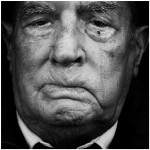
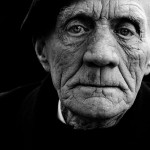
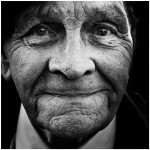
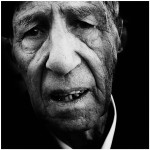
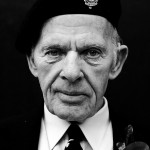










This morning, in a moment not without irony, on our way to Edinburgh we drove on the A68 past Dryburgh Abbey as the clock struck eleven, as the chimes ended we passed Bemersyde. Haig is buried at Dryburgh and Bemersyde is the country house that, in a moment of supreme irony was given to him “for his services to the nation” it having been lost to the family in a previous time through financial mismanagement.
Haig seems not to have been much troubled by the slaughter that he orchestrated, his son was, a decent man, both writer and painter, he died recently after years of hitting the bottle in an attempt to dull the reality.
Well done everyone, the poetry has dulled the irony.
Yes, a magnificent selection, thank you all. I’m a big fan of Wilfred Owen but I confess I’d never read any of these before.
But didn’t Haig partially redeem his lack of imagination in the early years on the battlefields by working together sensibly with other commanders, leading very impressively at the end of the war, and then working devotedly for ex-servicemen after it?
Very glad to see Hardy & Larkin here. Most especially “I looked up from my writing…” & “Drummer Hodge.”
Thanks.
I didn’t know any of these – and keep coming back to read them again. Thanks, Dabblers.
I’ve always (unfairly) given Hardy’s poetry a bit of a wide berth. Clearly something for me to remedy.
Here‘s something on the ups and downs of Hardy and an interesting comparison with Eliot.